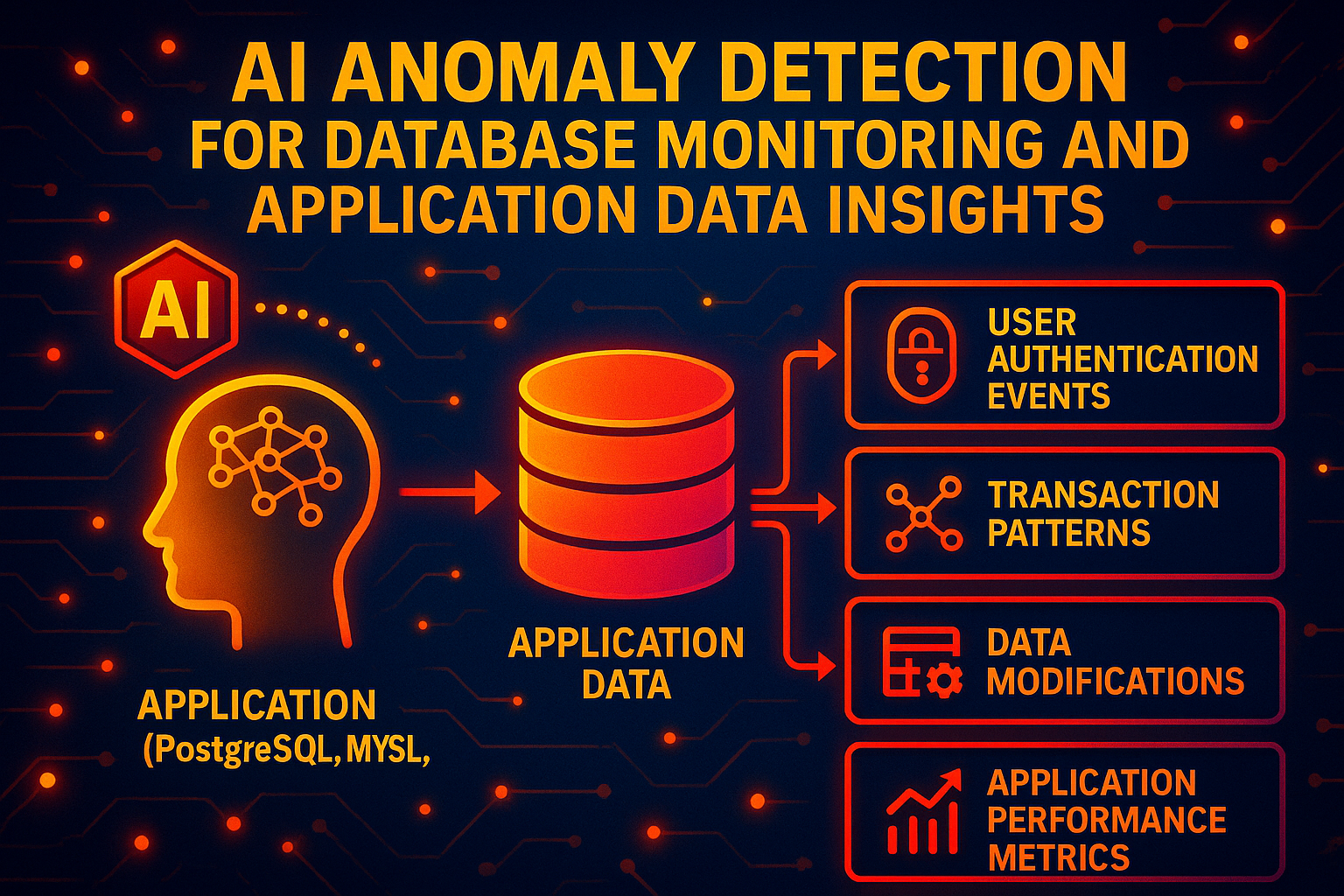AI Anomaly Detection for Database Monitoring and Application Data Insights

AI-Powered Anomaly Detection for Database Monitoring and Business Data Insights
In today’s data-driven landscape, organizations need more than just monitoring tools—they need intelligent systems capable of identifying subtle but critical anomalies in real time. One of the most transformative innovations in this space is AI-based anomaly detection for application databases, which enables security, DevOps, and business intelligence teams to detect unusual behavior patterns across operational and transactional data without disrupting application performance.
A New Era of Database Monitoring
At the heart of this innovation lies a SQL-based anomaly detection engine. This system connects directly to popular relational databases like PostgreSQL, MySQL, and others, allowing teams to monitor data for abnormalities without modifying application code or architecture. Instead of relying solely on system logs or external observability platforms, this approach provides granular, query-driven insights directly from the source of truth—your application’s database.
Key Anomaly Detection Capabilities:
With this system, teams can proactively surface anomalies in a wide range of areas:
User Authentication Events
Excessive failed login attempts
Login activity during unusual hours
Privilege escalations or suspicious role changes
Transactional Behavior
Abnormal payment amounts or rapid transaction frequency
Introduction of new recipient accounts in financial systems
Behavior deviating from historical baselines
Data Modifications
Unauthorized or unexpected schema changes
Bulk record updates/deletes in sensitive tables
Inconsistent metadata alterations
Performance Metrics
Spikes in query execution time
Sudden increases in resource consumption
Bottlenecks that coincide with user activity or business events
Intelligent Integration with Business Logic
What sets this anomaly detection system apart is its ability to align with your application’s specific domain logic. Instead of generic thresholds and alerts, the platform allows teams to craft business-aware queries that reflect the real-world context of their data.
Some examples include:
Customer Behavior Analysis
Detect when user actions deviate from established engagement patterns, such as unusual browsing-to-purchase ratios or irregular session durations.
Order & Fulfillment Monitoring
Flag bulk orders or cancellations that may indicate fraud or supply chain manipulation.
Inventory Management
Identify product movements that don’t align with sales data, possibly pointing to internal theft or mismanagement.
Financial Anomalies
Surface unexpected spikes in expense categories or transactions that bypass approval thresholds.
Built for Scalability and Performance
Designed with enterprise environments in mind, this system supports:
- Custom SQL Queries with full parameterization
- Connection Pooling for efficient resource usage
Timeout Management to avoid impacting production environments
Role-based Access Controls (RBAC) to maintain data security
Scheduling & Automation for routine anomaly scans
By leveraging these configurations, organizations can implement highly targeted, low-overhead monitoring across critical data systems.
A Strategic Advantage
For organizations operating in regulated industries, e-commerce, fintech, or SaaS, AI-powered anomaly detection offers a strategic layer of defense and insight. It doesn’t just alert you when something is wrong—it helps you understand why and where the issue is rooted in your application or user data.